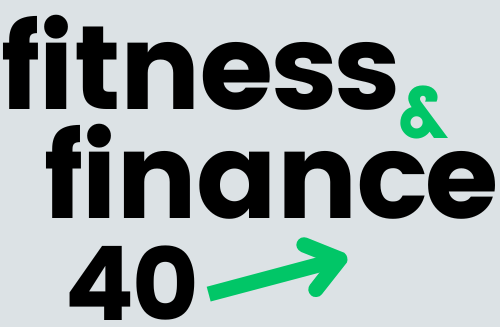
I like money.
Who doesn’t?
I suppose some people don’t think money “really matters,” but in my experience, those folks are either (A) lying to make themselves feel better and/or (B) have difficulty managing it.
While I like money and making as much of it as possible, I also enjoy managing it.
For most of my youth and into my teens, my dad was a stock broker, so you might think that my fascination with money began then, but that isn’t the case.
My keen interest in money, specifically its management, was sparked when I owned my two businesses, one of which I opened at the beginning of the 2008 recession.
As a brick-and-mortar business owner with a small staff of employees, I had to manage our monthly expenses, ensure that we were generating enough revenue to cover those expenses, and, hopefully, make a bit of profit at the end of each month.
During the time I owned my businesses, I became obsessed with money and numbers. Analyzing how much was coming in, how much was going out, and forecasting future revenue were part of my regular activities.
While one of my businesses performed well, I could never get the other one to generate similar results, and I eventually made the decision to close it.
Although the one continued to do well and had a steady flow of clients, the amount of business debt I had accrued became too much for me to handle.
It was taking a huge toll on me financially and emotionally.
I ended up filing for bankruptcy.
Bankruptcy Blessing
Although the bankruptcy was the result of a crushing amount of business debt, it prompted me to examine my personal finances as well.
At that point, I was in my 40s.
While I’d always been diligent about saving money, my spending habits over the years were, admittedly, not very disciplined.
Filing for bankruptcy was a wake-up call.
I realized that I needed to tighten things up with my finances and get better control over where my money was going every month.
Looking back, although I equated bankruptcy with being a “failure”, I now view it as the event that benefitted me the most from a personal finance perspective.
It also ignited a desire in me to help other people with their finances so they never have to feel the emotional stress that I did.
Three Simple Ways To Win With Money
There are any number of economic factors that can negatively impact someone’s finances, like inflation and job loss.
These are, however, issues that are largely out of our control.
Something that we do have complete control over, though, is the amount of discipline that we wield over our money.
In my opinion, behavioral issues and a lack of discipline are at the root of most people’s struggles with money.
And, there’s science to back me up.
Research has shown that spending money can trigger the feel-good chemical dopamine in our brains.
It’s been shown that just shopping for stuff can spike dopamine.
It puts a whole new meaning to the phrase “money is like a drug.”
Buying things to make yourself feel better or to impress others, an inability to identify wants versus needs and frivolous spending are all behavior-related money issues.
Let me be upfront—You will NEVER win with money if you fail to address these issues.
Economic factors notwithstanding, here are three clear-cut, basic ways to gain more discipline and control over your money.
- Create a Budget: Establishing a monthly budget is a basic step in managing your finances. Begin by tracking your monthly income and expenses, categorizing your spending habits, and identifying areas where you can cut back or save. There are a bunch of apps that make monthly budgeting incredibly simple. A monthly budget will give you a clear understanding of your finances and help you make better decisions.
- Reduce Debt and Save: Reducing debt should be a priority when it comes to managing your finances. Start by tackling high-interest debts, such as credit card balances, which can erode your income over time. Consider developing a debt repayment strategy, such as the debt snowball or debt avalanche method, to systematically pay off your debts. Also, make it a habit to save a portion of your income regularly. Aim to build an emergency fund that covers three to six months of living expenses which will protect you from unexpected events and help you avoid going into debt when faced with an emergency.
- Build Your Financial Knowledge: Take the time to educate yourself about personal finance topics such as budgeting, investing, taxes, and retirement planning. It’s never been easier to expand your financial knowledge. You can read books, listen to podcasts, or follow reputable financial blogs.
While personal finance and winning with money might seem perplexing, like any other seemingly complex topic, it’s best approached by breaking it down into simple concepts and steps.
Struggling to get ahead with your personal finances? Click on the “Money Coaching” tab to schedule a complimentary 30-min coaching call with me.
Want a done-for-you daily routine to combat the “Three Pillars Of Stress” in less than an hour a day? Check out my book, Mind Body & Money.

